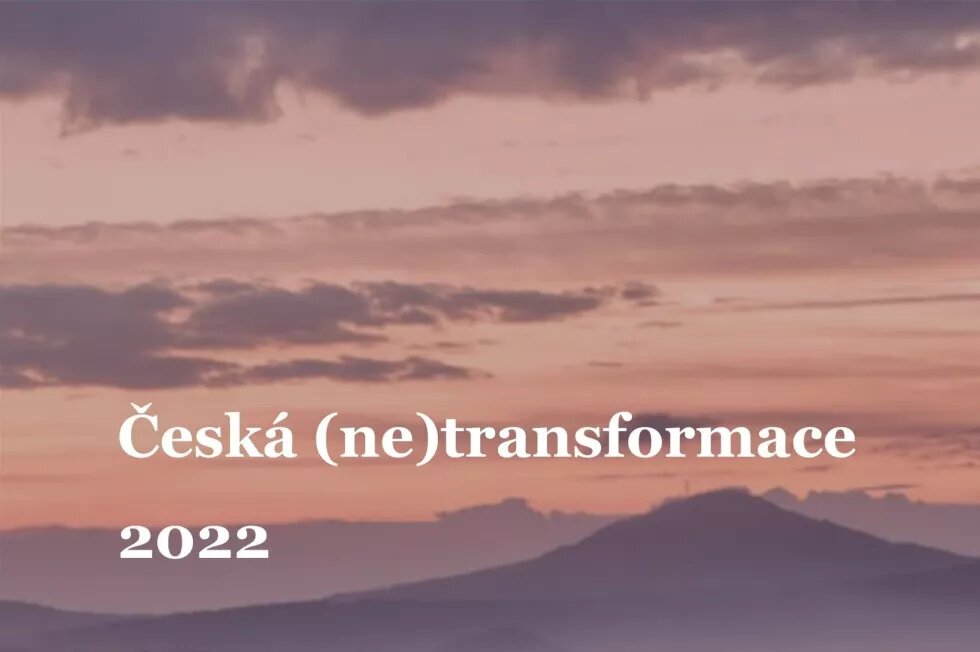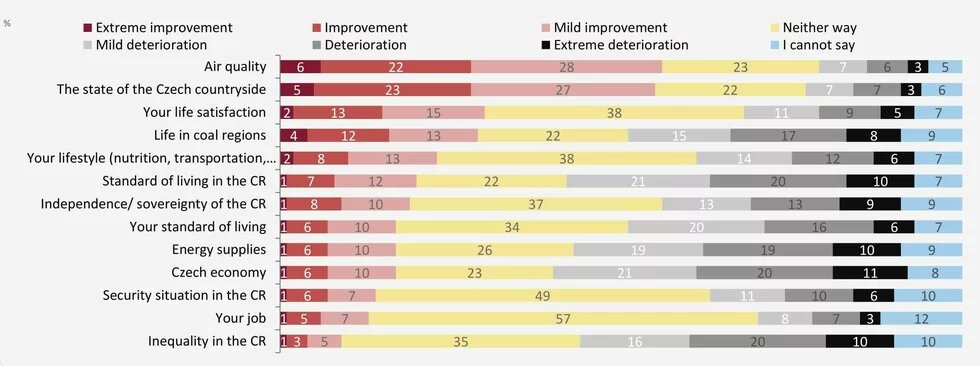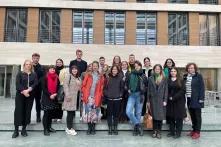
The sociological institute STEM and the communication centre Institut 2050, with the support of Heinrich Böll Stiftung Prague, have carried out a unique survey called “The Czech (non-) transformation 2022” looking at public sentiment towards various climate protection measures aimed at decarbonising the economy. In recent months, the Green Deal (GD) has become the subject of many misinterpretations and a conversation topic for lots of people in the Czech Republic. The aim of the survey was to capture the fears (barriers, threats) as well as the positive expectations (opportunities, benefits) present in Czech society with regard to the transformation and to test various instruments based on EU policy, the Green Deal, and the ‘Fit for 55’ package. The study also focused on identifying narratives that could help reduce fears or doubts and raise expectations.

Methodology
The quantitative survey was conducted during May 2022 on a representative sample of citizens of the Czech Republic. A large number of participants over 18 years of age (2,086 persons), selected by quota sampling, were interviewed using a combination of online and in-person methods (CAWI, CAPI).
The Situation in the Czech Republic
The Czech Republic ranks among the European countries with a tradition of heavy industry as well as the mining and processing of black and brown coal. Czech carbon emissions, among the highest per capita in the EU, come primarily from burning lignite in coal-fired power stations. Three coal areas – the Ostrava, Ústí nad Labem, and Karlovy Vary regions – have already prepared their plans for a just transformation. Their common issue is the low participation of local inhabitants as well as the prevalence of big business projects. This fact has also contributed to the results of the survey, which show that although the Czech Republic is the recipient of a large amount of funding to support the transformation, the Czech population is almost unaware of the process. The positive news from previous research is that Czechs know the climate crisis is caused by human activity.
Conclusions
Above all, the study has shown that the Czech public will gladly protect nature, landscape, and climate, but fears greatly the economic and social impacts of the transformation. These worries and the potentially fast pace of change, from the viewpoint of ordinary citizens, constitute a strong barrier to their embracing it. “Until the changes are socially acceptable enough for various groups of citizens in our country, they will be very difficult to introduce, if at all,” says Martin Buchtík, a sociologist who is the director of STEM.
Overall, the public is poorly informed about the causes and impacts of climate change. People also know very little about the transformation, their country’s obligations, and the measures planned. Only a tenth of citizens say they have enough information on the European Green Deal, about half say they know a little, and a third say they know almost nothing. However, people expect the economic transformation to bring significant changes, with the majority leaning towards it being a necessary process, but at the same time fearing that the decision has been a rushed one.
The public’s unclear understanding of the size and effectivity of the individual measures stems from this fear. The measures are often judged emotionally, in accordance with one’s overall attitude towards the transformation. In general, steps including subsidies or support are well-received, while taxation, cancellation or bans are not. The accessibility of these policies in practice to different groups in society in terms of economics, information and technology (as opposed to their declared accessibility) will be crucial for their implementation.
As a result, the Czech public’s view on the issue at hand is not black-and-white. The survey shows that Czech society is divided into five larger groups. These differ not only in their attitude towards the transformation from the environmental, economic and social points of view, but also in their knowledge about and interest in the topic. One’s attitude and knowledge arises from one’s values in general and, above all, from one’s life experience.
CLIMATE CHANGE AND TRANSFORMATION
The majority of Czech society nowadays recognizes climate change as a phenomenon that is happening right now (61%) or that will happen in the future (another 12%). There is also agreement on the urgency of addressing climate change, as 72% of Czechs think we need to start doing so in this decade. The transformation (of the economy and society) to meet low-carbon goals must be massive, according to public opinion (25% “Total change”, 42% “Substantial change”).
However, Czech society does not have a lot of information about the reasons for and impacts of climate change. People also have just minor knowledge of the green transformation, the Czech Republic’s obligations, and the planned policies in this area.
“Which of the following claims about global climate change is closest to your opinion?”
Previous STEM research has also shown that a majority of Czech citizens believe that global climate change is anthropogenic:
“Regardless of whether you agree or disagree with climate protection, if humanity decided to protect the climate diligently, what kind of change do you think would need to be made in terms of how society operates?”
“In what time horizon do you think it is necessary to address climate change?"
"Is the situation in these areas a serious problem or not?"
GREEN DEAL
According to the Czech public, the GD will bring about necessary change. However, people think that the GD is rushed and not very well planned. At the same time, there is a split as to whether the change will be good or bad and whether it is more of an opportunity or rather, a threat.
“The Green Deal: What kind of change do you think it will be?”*
Czechs expect that the GD will bring about improvements, mainly in areas directly related to the environment. Regarding the impact on the economy and living standards in the country, Czechs are significantly more sceptical or unsure about the GD’s merits. A significant proportion of people expect a deterioration of the Czech economy (52%) and living standards (51%) or an increase in inequalities (46%) as a result of the GD.
“The Green Deal: In your opinion, what impact will this plan have on individual areas of your life and on Czech society?"
The main positive outcome of the Green Deal that is expected by Czechs is improvement of air quality and of the condition of the Czech landscape. On the other hand, there are strong concerns about its impact on the economy and on household living standards. Addressing its social impacts is, therefore, a fundamental condition for any successful transformation.
Jan Krajhanzl, the Institut 2050 founder and director, has commented on the results as follows: “A number of measures already have a majority of public support. Renewable energy is clearly supported, even by those who maintain a critical stance towards the European Green Deal. There is also a strong consensus on reducing the energy intensity of housing through insulation or the construction of low-emission buildings, as well as subsidies for buying solar panels and heat pumps.”
A detailed breakdown into the individual segments of the survey can be seen in the leaflet (in English) or in the research reports (in Czech):
REPORTS
Full report (CZ):
https://www.stem.cz/wp-content/uploads/2022/09/STEM_Institut2050_Ceska_netransformace_report.pdf
Short report (CZ):
https://www.stem.cz/wp-content/uploads/2022/09/STEM_Ceska_netransformace_paper_fin.pdf







